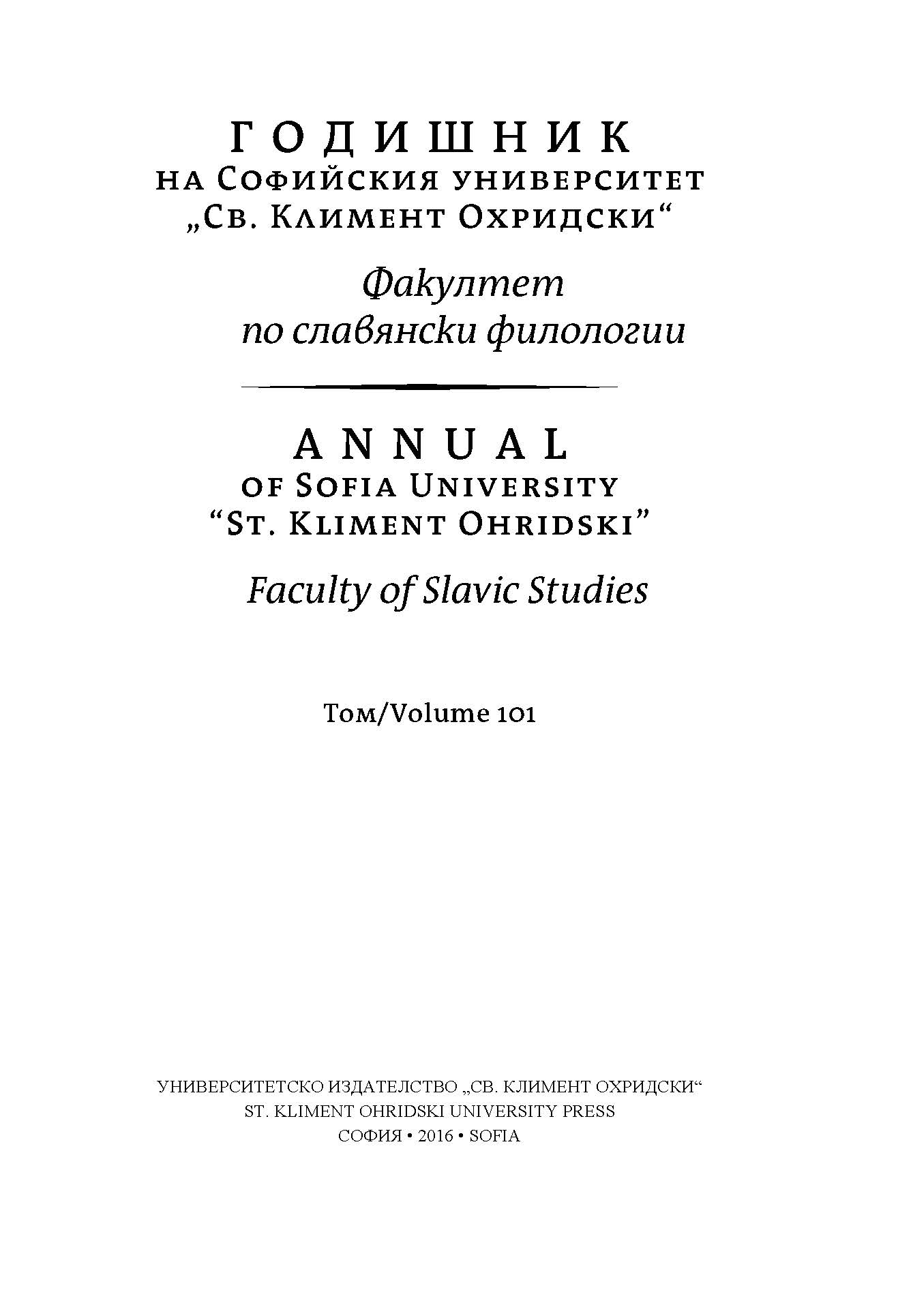Суфиксалномотивирани съществителни с абстрактно значение в текста на Египетския патерик
Abstract Nouns with Suffixes in the Egipetski Paterik
Author(s): Petko PetkovSubject(s): Language studies, Language and Literature Studies, Theoretical Linguistics, Studies of Literature, Morphology, Lexis, Historical Linguistics, Bulgarian Literature, South Slavic Languages, Philology, Translation Studies
Published by: Софийски университет »Св. Климент Охридски«
Keywords: Old Bulgarian; Old Church Slavonic; Vocabulary; Egipetski Paterik; Abstract Nouns
Summary/Abstract: The development of a new literary language requires elaboration of the system of abstract nouns. The use of abstract lexis, of theological terminology, and a big number of compound words differentiates the Old Bulgarian (Old Church Slavonic) literary vocabulary from every Slavic dialect in the 9th century and today. The present study of the abstract nouns formed with suffixes in the Egipetski Paterik sheds light on an early stage of the development of abstract lexis in the Old Bulgarian literary language. Such nouns characterize translator’s style and the challenges he met. This paper discusses the following types of abstract nouns in the Egipetski Paterik: abstract nouns of feminine gender with suffixes -ость, -ъınʜ, -ота/-ета, -тва, -ʜna, -ьва and neuter abstract nouns in -nʜѥ/-тʜѥ, -ʜѥ, -ьство и -ьствʜѥ. The semantics of the lexemes examined is discussed according to the context in which they are used. Further, the use of these lexemes in the Egipetski Paterik is juxtaposed with their use in three types of sources: the so-called classical Old Bulgarian (OCS) corpus from the 10th–11th centuries; texts originating from 10th-century Preslav that survive in later copies; and similar – in style and language – Old Bulgarian translations of paterica.
Journal: Годишник на Софийския университет „Св. Климент Охридски“, Факултет по славянски филологии
- Issue Year: 2016
- Issue No: 101
- Page Range: 5-104
- Page Count: 100
- Language: Bulgarian

